In this era of the knowledge economy and the
knowledge society, we are still taking baby steps in our understanding
and utilization of knowledge management. What is this notion of
knowledge management? How did it evolve to the current state? Are we on
the right track in the application of knowledge management systems (KMS)
in work organizations? These are the questions addressed in this
tutorial. The discussion focuses on the trend of the growth and
utilization of knowledge management and the barriers involved in its
implementation in work organizations. The issue of the myopic
application of KMS will also be explored. Why are we encountering so
many difficulties in exploiting the knowledge-bases in our
organizations? Is KMS just a fad, or a potentially powerful tool for
growth and effectiveness? Based on the literature and the experience
gained from case studies, some recommendations and practical solutions
are offered.
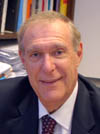 Eliezer
(Elie) Geisler is the Distinguished Professor at the Stuart
School of Business, Illinois Institute of Technology (IIT) and Director
of the IIT Center for the Management of Medical Technology. He holds a
doctorate from the Kellogg School at Northwestern University. Dr.
Geisler is the author of over 100 papers in the areas of technology and
innovation management, the evaluation of R&D, science and technology,
knowledge management, and the management of healthcare and medical
technology. He is the author of several books, including: Managing the
Aftermath of Radical Corporate Change (1997), The Metrics of Science and
Technology (2000), also translated into Chinese, Creating Value with
Science and Technology (2001), Installing and Managing Workable
Knowledge Management Systems (With Rubenstein, 2003) , Knowledge and
Knowledge Systems: Learning from the Wonders of the Mind (2007), and
Principles of Knowledge Management (with Wickramasinghe, 2009). He
consulted for major corporations and for many U.S. federal departments:
Defense, Agriculture, Commerce, EPA, Energy, and NASA. Dr. Geisler is
the co-founder of the annual conferences on the Hospital of the Future,
and the Health Care Technology and Management Association, a joint
venture of over a dozen universities in 10 countries. He serves on
various editorial boards of major journals. Dr. Geisler founded and was
editor of the information technology section of the IEEE Transactions on
Engineering Management, and was a founding co-editor of the
International Journal of Healthcare Technology and Management. His
current research interests include the nature and metrics of
technological innovation and knowledge, and knowledge management in
complex systems.
Eliezer
(Elie) Geisler is the Distinguished Professor at the Stuart
School of Business, Illinois Institute of Technology (IIT) and Director
of the IIT Center for the Management of Medical Technology. He holds a
doctorate from the Kellogg School at Northwestern University. Dr.
Geisler is the author of over 100 papers in the areas of technology and
innovation management, the evaluation of R&D, science and technology,
knowledge management, and the management of healthcare and medical
technology. He is the author of several books, including: Managing the
Aftermath of Radical Corporate Change (1997), The Metrics of Science and
Technology (2000), also translated into Chinese, Creating Value with
Science and Technology (2001), Installing and Managing Workable
Knowledge Management Systems (With Rubenstein, 2003) , Knowledge and
Knowledge Systems: Learning from the Wonders of the Mind (2007), and
Principles of Knowledge Management (with Wickramasinghe, 2009). He
consulted for major corporations and for many U.S. federal departments:
Defense, Agriculture, Commerce, EPA, Energy, and NASA. Dr. Geisler is
the co-founder of the annual conferences on the Hospital of the Future,
and the Health Care Technology and Management Association, a joint
venture of over a dozen universities in 10 countries. He serves on
various editorial boards of major journals. Dr. Geisler founded and was
editor of the information technology section of the IEEE Transactions on
Engineering Management, and was a founding co-editor of the
International Journal of Healthcare Technology and Management. His
current research interests include the nature and metrics of
technological innovation and knowledge, and knowledge management in
complex systems.

Today in enterprises and businesses the eWorld has
become more and more important. Classic planning and control systems
cannot deliver “the right” decision every time. This causes a very
important problem for international enterprises and project control. In
this tutorial the participants will learn how to manage strategic
technology networks in the age of increasing importance of cooperation
and globalisation in the changing of rules. The purpose of the presented
strategic technology program framework is to support achieving the best
practice management of strategic technology networks and optimization of
network performance and collaboration for national and international
enterprises with different goals and possibilities.
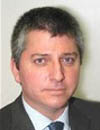 Prof.
Dr. Alptekin Erkollar is Head of the Department of Business Organization
and Business Informatics, ETCOP Europe and Professor in the area of
Business Informatics and Business Management. He has over 18 years of
experience in the area of academic education (Universities in Austria,
Switzerland, Germany, Liechtenstein, USA, Turkey, Ukraine, New Zealand
and Sweden). Prof. Erkollar has several books in the areas of Business
Informatics and Business Management. He has over 190 papers published in
various international publications.
Prof.
Dr. Alptekin Erkollar is Head of the Department of Business Organization
and Business Informatics, ETCOP Europe and Professor in the area of
Business Informatics and Business Management. He has over 18 years of
experience in the area of academic education (Universities in Austria,
Switzerland, Germany, Liechtenstein, USA, Turkey, Ukraine, New Zealand
and Sweden). Prof. Erkollar has several books in the areas of Business
Informatics and Business Management. He has over 190 papers published in
various international publications.

The digital revolution has changed the way most of
us work, especially those involved in creative knowledge work. The
internet makes sharing and collaboration possible in research,
development, and engineering (R, D, & E) around the globe. As a result,
expertise no longer has to be geographically concentrated. Distributed
expertise can be synthesized to enhance R, D, & E. However, effective
work among people at dispersed locations can be challenging. Differences
in work environments, culture, time zones, etc., make collaboration
among multiple work sites and disciplines difficult. When it works well,
richer perspectives develop and novel solutions emerge. When it works
poorly, potential remains unrealized.
This tutorial will provide a framework for thinking about cross-boundary
collaboration in knowledge work. What does it take to create a virtual
work space that minimizes hurdles to effective collaboration and aligns
with the way professionals work? The tutorial will then focus on the
example of science gateways – a web-based solution to the challenges of
collaboration. The nanoHUB gateway will be profiled in depth to show how
it functions as a site for collaborative knowledge work that facilitates
both learning and discovery. The nanoHUB serves multiple fields The
nanoHUB serves researchers in nanotechnology. (www.nanohub.org).
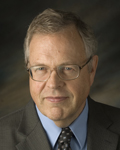 Michael
Beyerlein is Department Head and Professor for Organizational
Leadership & Supervision at Purdue University. Formerly, he was Director
of the Center for Collaborative Organizations and Professor of
Industrial/Organizational Psychology at the University of North Texas.
His research interests include: collaboration, including work teams,
virtual teams, and virtual organizations; organizational design and
change; creativity and innovation systems; knowledge management and the
learning organization; leadership, especially across boundaries; and
science competencies, collaboration, and processes. He has been a member
of the editorial boards for TEAM Magazine, Team Performance Management
Journal, and Quality Management Journal and senior editor of the
Elsevier annual series Advances in Interdisciplinary Studies of Work
Teams and the Jossey-Bass/Pfeiffer Collaborative Work Systems series. He
has authored or edited 20 books, including: The handbook for high
performance virtual teams: A toolkit for collaborating across boundaries
(2008), Guiding the journey to collaborative work systems: A Strategic
Design workbook (2004), and Collaborative capital (2005). He has been
involved in projects with such companies as Boeing, Shell, NCH, AMD,
Intel, Raytheon, First American Financial, Westinghouse, and Xerox and
with government agencies such as Veterans Affairs, DCMAO, EPA, and the
City of Denton, Texas.
Michael
Beyerlein is Department Head and Professor for Organizational
Leadership & Supervision at Purdue University. Formerly, he was Director
of the Center for Collaborative Organizations and Professor of
Industrial/Organizational Psychology at the University of North Texas.
His research interests include: collaboration, including work teams,
virtual teams, and virtual organizations; organizational design and
change; creativity and innovation systems; knowledge management and the
learning organization; leadership, especially across boundaries; and
science competencies, collaboration, and processes. He has been a member
of the editorial boards for TEAM Magazine, Team Performance Management
Journal, and Quality Management Journal and senior editor of the
Elsevier annual series Advances in Interdisciplinary Studies of Work
Teams and the Jossey-Bass/Pfeiffer Collaborative Work Systems series. He
has authored or edited 20 books, including: The handbook for high
performance virtual teams: A toolkit for collaborating across boundaries
(2008), Guiding the journey to collaborative work systems: A Strategic
Design workbook (2004), and Collaborative capital (2005). He has been
involved in projects with such companies as Boeing, Shell, NCH, AMD,
Intel, Raytheon, First American Financial, Westinghouse, and Xerox and
with government agencies such as Veterans Affairs, DCMAO, EPA, and the
City of Denton, Texas.
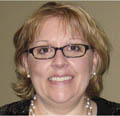 Pamela
is currently a Ph.D. student in Communication at Purdue University
specializing in Media, Technology, and Society (MTS). Her interests are
collaborative computing, social networks, and remote and virtual teams.
She is currently a graduate research assistant with both the Regenstrief
Institute for Healthcare Engineering and the Department of
Organizational Leadership and Supervision’s Hub Collaboration Research
Team. Pamela studied computer science and worked at IBM for 12 years
before coming to Purdue. At IBM she was a file system programmer, a
porting consultant working with IBM business partners, a team lead for
Linux software development, and most recently, a certified project
manager (PMP) with eSupport tools strategy in IBM’s Software Group.
Pamela aspires to work in corporate research when she completes her
degree.
Pamela
is currently a Ph.D. student in Communication at Purdue University
specializing in Media, Technology, and Society (MTS). Her interests are
collaborative computing, social networks, and remote and virtual teams.
She is currently a graduate research assistant with both the Regenstrief
Institute for Healthcare Engineering and the Department of
Organizational Leadership and Supervision’s Hub Collaboration Research
Team. Pamela studied computer science and worked at IBM for 12 years
before coming to Purdue. At IBM she was a file system programmer, a
porting consultant working with IBM business partners, a team lead for
Linux software development, and most recently, a certified project
manager (PMP) with eSupport tools strategy in IBM’s Software Group.
Pamela aspires to work in corporate research when she completes her
degree.
Susan Tull Beyerlein holds a B.A. in English from the
University of Oregon, an M.S. in general psychology from Fort Hays State
University, and a Ph.D. in organization theory and policy with a minor
in education research from the University of North Texas. She has taught
a variety of management courses as an adjunct faculty member at several
universities in the Dallas metroplex, with a particular focus on
strategic management at both the undergraduate and MBA levels. Susan has
served as a research scientist/project manager with the Center for the
Study of Work Teams at the University of North Texas and the Department
of Organizational Leadership & Supervision at Purdue University, and has
been a recipient of grant awards from the Association for Quality and
Participation, the National Science Foundation, and corporate donors.
She co-edited 11 volumes of the Elsevier/JAI Imprint annual book series
entitled, Advances in Interdisciplinary Studies of Work Teams, and was a
member of the editorial team for the Jossey-Bass/Pfeiffer Collaborative
Work Systems series. She co-edited the bookThe handbook for high
performance virtual teams: A toolkit for collaborating across boundaries
(2008). For a number of years, she has served as an ad hoc reviewer for
The Academy of Management Review. Susan has published book reviews on
contemporary business offerings in the journal, Business and the
Contemporary World, and her work has also appeared in Structural
Equation Modeling: A Multidisciplinary Journal, Teams: The Magazine for
High Performance Organizations (UK), Journal of Management Education,
Empirical Studies of the Arts, and Multiple Linear Regression
Viewpoints. She is a member of the Academy of Management, Beta Gamma
Sigma--the honor society for collegiate schools of business, and Phi
Kappa Phi National Honor Society.

PMAP - What is it? Project financial risks have
moved to the forefront of companies concerns given today’s challenging
economic climate. Such risks are also continuously influenced by many of
today’s global project factors, including: the dynamics of sophisticated
system and business owners, the complexity of global businesses,
aggressive cultures, technological advances, and out-sourcing
strategies. The Project Management Alignment Program is based on early
principles of partnering in order to slow a litigious environment.
Additionally, it is more than a temporary effort; it is an on-going
emphasis and strategy for highly successful performance driven projects.
It can turn around the most troublesome endeavors and can bring a halt
to the adversarial environment which materializes on many aggressive
projects. Its focus is: high standards, continuous collaboration, active
and persistent project participants, enhanced management processes,
project focused communication and maintenance of principles and habits
of alignment.
PMAP is about people. A world evolving in a paradigm of fundamental
changes will challenge how businesses accomplish work. People are most
often motivated from within, influenced by their surroundings and
personal experiences, which results in unique responses to even the most
common project related challenges. In some cases, people may act
unreasonably, feel unjustly criticized, fight back or run away to avoid
situations, which can contribute to additional project risk. How people
treat each other and respond to events, issues and situations, ties
directly to the success or failure of the project. Trust and respect are
elusive and need to be continually built upon. Simply put, it is how we
do business together that makes the project succeed.
Relevance to the conference theme: Fundamental changes in how business
and technology development will be executed in the future will stretch
the business capabilities from both a resource and economic standpoint.
Facing the diverse economic challenges, including energy consumption and
distribution, and environmental demands will be daunting in and of
itself. As such, why not direct business resources and focus intensely
on the technology as the focal point for our change, rather than expend
valuable resources addressing distractions and inefficiencies which
result in continual project shortcomings.
 Jeff
Busch is a 30+ year veteran in the field of project management
with extensive experience in the design/construction, product
development and service industries. His areas of expertise include
project management, dispute resolution, including mediation and
arbitration, partnering facilitation, scheduling, business and
management training. His background is characterized by a diversity of
experience as a tradesman, project engineer and project manager for
projects, construction expert for litigation and as a senior consultant
for businesses.
Jeff
Busch is a 30+ year veteran in the field of project management
with extensive experience in the design/construction, product
development and service industries. His areas of expertise include
project management, dispute resolution, including mediation and
arbitration, partnering facilitation, scheduling, business and
management training. His background is characterized by a diversity of
experience as a tradesman, project engineer and project manager for
projects, construction expert for litigation and as a senior consultant
for businesses.
He is a recognized authority in Project Management, CPM Scheduling and
Dispute Resolution and is widely published on these and related topics.
His experience has included presenting seminars and management training
for construction, engineering, manufacturing and semi-conductor firms
throughout North America, with international experience in Asia, Europe,
and Mexico as well as project specific work for international
construction firms. In association with Cadence Management Corporation
he has provided both consulting and training for organizations such as;
Boston Scientific, Nike, Starbucks, AMD, EBay/Pay-Pal, Polaris
Industries, Tyson Foods, Network Appliance, Kimberly-Clark, Rockwell
Collins, Altera, Spansion, and Edwards Lifesciences.
As a scheduling expert he has served as an expert witness on more then
40 occasions throughout the state court systems , as well as both the US
Federal District Court and the US Court of Federal Claims.. Known best
for his pro-active role as a Partnering facilitator, he has developed
tools and techniques that have broken through many of the barriers that
have plagued projects. He is active in Partnering facilitation,
Intervention Partnering, Project Alignment and serving as an Independent
Neutral. In 2006/07 he served as a Core-team lead for the revision and
re-write of the Project Management Body of Knowledge - Construction
Extension Standard for the Project Management Institute.

In this tutorial participants will learn how to
manage corporate technology using the balanced business scorecard.
Additionally, other methods for doing corporate technology management
will be shown.
It is increasingly becoming crucial to achieve organizational and
strategic goals. A framework will be presented for evaluating
information and technology managemetn strategies based on balanced
business scorecard approach and the way to develop a corporate
technology management balanced scorecard is shown.
After attending this tutorial, participants will know how to design an
evaluation framework for information and technology management
strategies. The presented framework is a strategic management tool that
enables management decision makers to follow up the measures and to
drive performance based on the goals that were set and agreed upon in
advance.
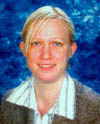 Assoc.
Prof. Dr. Birgit J. Oberer is Head of Scientific Research at
ETCOP Europe and gives lectures at various Universities, mainly in
Austria, Turkey, Switzerland and Germany. She has over 12 years of
experience in the area of academic education and has authored several
books in the area of Business Management and Business Informatics,
contributed to American textbooks in the area of information technology
and economics and published over 80 papers in international
publications.
Assoc.
Prof. Dr. Birgit J. Oberer is Head of Scientific Research at
ETCOP Europe and gives lectures at various Universities, mainly in
Austria, Turkey, Switzerland and Germany. She has over 12 years of
experience in the area of academic education and has authored several
books in the area of Business Management and Business Informatics,
contributed to American textbooks in the area of information technology
and economics and published over 80 papers in international
publications.

Technological changes are continuously creating new
challenges and opportunities for new product, service, process and
organizational development. However, these opportunities need to be
captured and converted into value through effective and dynamic
technology management (TM). This requires a new way of understanding TM
that captures its dynamic nature as well as managerial aspects. In this
workshop, a new TM framework will be presented. This model is based on
dynamic capabilities theory, emphasizing the development and
exploitation of technological capabilities that are changing on an
ongoing base. Dynamic capabilities theory is not primarily concerned
with fixed assets, but rather aims to explain the way in which a firm
allocates resources for innovation over time, how it generates and
deploys its existing resources, and where it obtains new resources. This
is highly relevant for developing an approach to TM that can explain how
combinations of resources and processes can be developed, deployed and
protected for each TM activity.
Therefore, the workshop will first introduce a comprehensive process
model that includes SIX specific TM activities: identification,
selection, acquisition, exploitation, protection, and learning. We argue
that the process of TM is essentially generic, although organization
and/or market-specific factors will constrain choices and actions. Then,
the workshop will provide description of SIX major TM tools and
techniques that are useful to carry out TM activities: patent analysis,
portfolio management, roadmapping, S-curve, S-curve, Stage-gate, and
value analysis. Again, even though it is difficult to delineate tools,
we select key tools that are the prevailing ones across TM processes and
helping to capture internal and external dynamics.
The workshop will present cases from the journal of Research-Technology
Management that is the highly respected practice journal in the field of
TM.
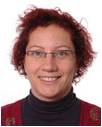 Dilek
Cetindamar received her B. S. degree from Industrial
Engineering Department at Boğaziçi University in 1989, her M.A degree
from Economics Department at BU in 1992, and her Ph.D. degree from
Management Department at Istanbul Technical University in 1995. She is
the director of Competitiveness Forum at Sabanci University since 2008.
Before her appointment to the Faculty of Management at Sabanci
University in 1999, she worked in the following universities: Boğaziçi
University, Case Western Reserve University (USA), Portland State
University (USA), and Chalmers University of Technology (Sweden). She
participated in many international projects, including United Nations
and European Union projects. She received an "encouragement award" from
Turkish Academy of Sciences in 2003. Her main interest and research
topics are Technology Management, Development Economics and
Entrepreneurship.
Dilek
Cetindamar received her B. S. degree from Industrial
Engineering Department at Boğaziçi University in 1989, her M.A degree
from Economics Department at BU in 1992, and her Ph.D. degree from
Management Department at Istanbul Technical University in 1995. She is
the director of Competitiveness Forum at Sabanci University since 2008.
Before her appointment to the Faculty of Management at Sabanci
University in 1999, she worked in the following universities: Boğaziçi
University, Case Western Reserve University (USA), Portland State
University (USA), and Chalmers University of Technology (Sweden). She
participated in many international projects, including United Nations
and European Union projects. She received an "encouragement award" from
Turkish Academy of Sciences in 2003. Her main interest and research
topics are Technology Management, Development Economics and
Entrepreneurship.
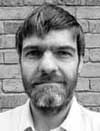 Robert
Phaal joined the Centre for Technology Management at Cambridge
University in 1997, and is currently engaged in a research program to
investigate strategic technology management issues in manufacturing
organizations. The particular focus of the research project is how to
link technology resources to company objectives, in order to develop a
set of practical and well-founded tools to support technology strategy
and planning initiatives in the firm. Rob has a background in mechanical
engineering, consulting and contract research, having previously worked
for The Welding Institute for six years. His current research projects
are: Technology Management - A Process Approach, Strategic Technology
Management - Linking Technology Resources to Company Objectives,
Industrial Sustainability, and Engineering re-use.
Robert
Phaal joined the Centre for Technology Management at Cambridge
University in 1997, and is currently engaged in a research program to
investigate strategic technology management issues in manufacturing
organizations. The particular focus of the research project is how to
link technology resources to company objectives, in order to develop a
set of practical and well-founded tools to support technology strategy
and planning initiatives in the firm. Rob has a background in mechanical
engineering, consulting and contract research, having previously worked
for The Welding Institute for six years. His current research projects
are: Technology Management - A Process Approach, Strategic Technology
Management - Linking Technology Resources to Company Objectives,
Industrial Sustainability, and Engineering re-use.
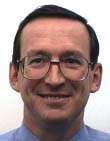 David
Probert pursued an industrial career with Marks and Spencer and
Philips for some 18 years before returning to Cambridge in 1991. His
experience covers a wide range of industrial engineering and management
disciplines in the UK and overseas. He joined the Manufacturing
Engineering Group as Royal Academy of Engineering/Lucas Industries
Research Fellow, to develop a practical approach to the issues of make
or buy and vertical integration in manufacturing industry, which has
been widely applied and disseminated. Now a senior lecturer in the
Department, he is a founding member and Head of the Centre for
Technology Management within the Institute for Manufacturing at the
University of Cambridge. His current research interests include:
technology and innovation strategy, technology management processes,
software sourcing and industrial sustainability.
David
Probert pursued an industrial career with Marks and Spencer and
Philips for some 18 years before returning to Cambridge in 1991. His
experience covers a wide range of industrial engineering and management
disciplines in the UK and overseas. He joined the Manufacturing
Engineering Group as Royal Academy of Engineering/Lucas Industries
Research Fellow, to develop a practical approach to the issues of make
or buy and vertical integration in manufacturing industry, which has
been widely applied and disseminated. Now a senior lecturer in the
Department, he is a founding member and Head of the Centre for
Technology Management within the Institute for Manufacturing at the
University of Cambridge. His current research interests include:
technology and innovation strategy, technology management processes,
software sourcing and industrial sustainability.

This tutorial is about the evolution of Project
Strategy a theory initially based on a practitioner’s belief that there
had to be an overarching approach to successful project management.
This epic journey began when as a project team member and later as a
project manager this researcher was frustrated at seeing projects fail
or only achieve less than full success. To this day, how to make
projects more successful is an issue of paramount importance to
organizations. After starting my Ph.D. program my advisor and I decided
to tackle the question head-on. We settled on a topic that we named
“Project Strategy.”
We initially collected 92 real life project case studies which were
analyzed and resulted in a number of joint research papers, some of
which were presented at previous PICMET conferences. Eventually I
completed my Ph.D. dissertation on Project Strategy and have since
collected an additional 550 cases.
Now that new research in Project Strategy is being done by others, join
me as I relate the story of how Project Strategy started evolved and
where it is heading.
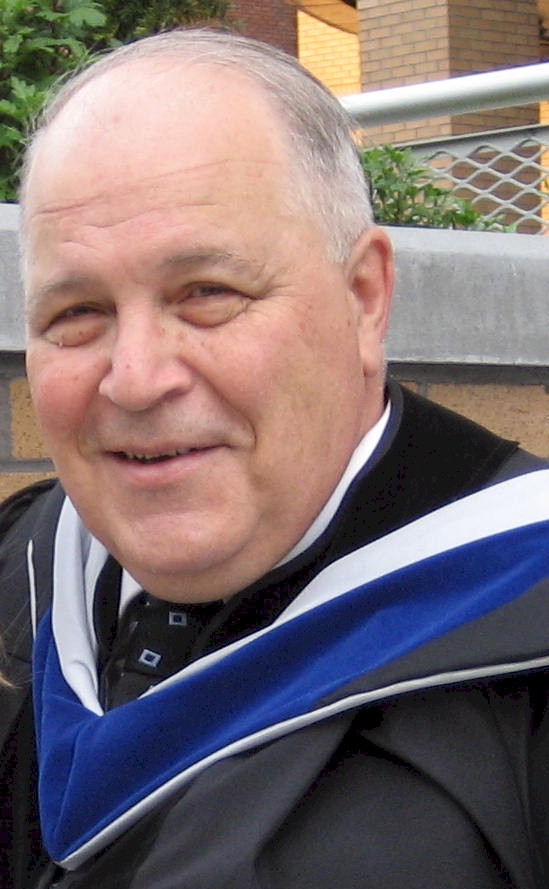 Michael
Poli is Distinguished Asociate Professor and Associate Program
Director in Project Management at the Stevens Institute of Technology.
He earned his doctorate in May 2006. His dissertation topic “Project
Strategy” was based upon real-life case studies. His Ph.D. advisor was
Dr. Aaron J. Shenhar. Michael was instrumental in leading and growing
the Stevens Project Management program during its formative years. He
also created and developed three of the four courses in the program.
Prior to Stevens, he was with AT&T as a Technical Supervisor of software
development. Michael also taught the premier, intensive week long
Project Management Workshop where he jump started many AT&T projects. He
also championed and developed the AT&T Bell Labs Best Current Practice
in Project Management. Prior to AT&T, Michael held positions in software
development, product management, and project management in IBM, EDS,
Olivetti and Exxon Systems.
Michael
Poli is Distinguished Asociate Professor and Associate Program
Director in Project Management at the Stevens Institute of Technology.
He earned his doctorate in May 2006. His dissertation topic “Project
Strategy” was based upon real-life case studies. His Ph.D. advisor was
Dr. Aaron J. Shenhar. Michael was instrumental in leading and growing
the Stevens Project Management program during its formative years. He
also created and developed three of the four courses in the program.
Prior to Stevens, he was with AT&T as a Technical Supervisor of software
development. Michael also taught the premier, intensive week long
Project Management Workshop where he jump started many AT&T projects. He
also championed and developed the AT&T Bell Labs Best Current Practice
in Project Management. Prior to AT&T, Michael held positions in software
development, product management, and project management in IBM, EDS,
Olivetti and Exxon Systems.

Systematic acceleration of breakthrough or radical
innovation has been hindered by a lack of articulated theory and tacit
knowledge and tools guiding practitioners in achieving profitable
commercialization within acceptable bounds of time, cost, and risk. The
Accelerated Radical Innovation (ARI) Methodology, introduced at a 2004
Conference on Accelerating the Radical Innovation Process, proposed to
change this state of affairs with a conceptual framework and associated
techniques and tools. The ARI Methodology has been applied
retrospectively to the analysis of radical innovation in energy and
health care and was applied in 2007-2008 as the guiding methodology for
a health care radical innovation in the White Rose Health Innovation
Partnership program funded by the United Kingdom’s National Health
Service.
This tutorial introduces the key concepts and tools of the ARI
methodology, including:
Ten-Step ARI Methodology Dynamics Process
Competitive Intelligence Management of Innovation at Each Step
Ten-Attribute Description of Successful Innovation Factors
Innovation Scorecard for Monitoring and Accelerating Innovation Progress
The ARI Methodology Guide Book
The ARI Methodology Answer Book
ARI Methodology Status System Workbook
Participant Involvement: The tutorial gives participants an opportunity
to apply some of these tools to a promising recent radical innovation in
cancer diagnosis and therapy. Feedback from attendees on improvements
and further applications of the ARI Methodology will be solicited,
verbally and via a short questionnaire.
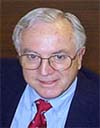 Dr.
John P. Dismukes
Dr.
John P. Dismukes is Professor of the Chemical and Environmental
Engineering Department at the University of Toledo (USA) and
Director of the International ARI Institute. An internationally
recognized material scientist, he has held research positions at the
RCA David Sarnoff Center and Exxon-Mobile’s Corporate Research
Laboratories. He is the author of 82 technical papers, holds 12
patents, and is a Fellow of the Electrochemical Society. Since 2004,
John is a co-founder and principal of the International Accelerated
Radical Innovation Institute, where he has taken the lead in
organizing conferences and workshops in the new field of Accelerated
Radical Innovation.
 Dr.
John A. Bers
Dr.
John A. Bers is Associate Professor of the Practice of
Engineering Management at Vanderbilt University’s School of
Engineering, where he teaches technology strategy, policy,
marketing, and systems engineering. Previously, he managed analysis
and planning at Nortel Networks and the Gas Research Institute. He
has been a strategy and marketing consultant to local and national
technology companies, and has facilitated workshops and courses for
technology executives across the United States. His current research
interest is in how to accelerate the commercialization and
deployment of radical and disruptive innovation. He is a co-founder
and co-principal of the International Accelerated Radical Innovation
Institute.
 Dr.
Lawrence Miller
Dr.
Lawrence Miller is Assistant Professor of Electrical
Engineering and Computer Science at the University of Toledo. He
serves as director of the SimNet Laboratory, which is conducting
research in fault tolerance, reliability, and traffic
engineering for real-time communications over high performance
networks. He is Associate Director of the Manufacturing Value
Chain Science (MVCS) center, which conducts research in value
chain dynamics leading to quantitative models and tools for
rapid, real-time analysis and simulation of manufacturing and
distribution operations. He is also conducting research in
Innovation Process Modeling, Information-Enhancement of Radical
Innovation, and Accelerated Radical Innovation. He is a
co-founder and co-principal of the International Accelerated
Radical Innovation Institute.


©2018 PICMET Inc. All rights reserved.